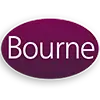Tenants Guide
We believe in being completely transparent with Tenants regarding their rights and responsibilities.
Health and Safety
Your Landlord/s and Letting Agents have a responsibility to ensure the property you live in is free from health hazards and safety risks.
Bourne Estate Agents work closely with our Landlords to ensure they are aware of their legal responsibilities and are kept informed of any changes to legislation regarding health and safety. Below are some of the key areas you should check regarding any property you are considering renting:
● Fire Regulations
Any furniture left in the property must comply with the Furniture and Furnishings (Fire) (Safety) Regulations 1988 (as amended in 1993). These relate to the provision of upholstered furniture. If any furniture does not comply with the regulations and carry an appropriate label, it should be removed and/or replaced.
● Smoke and Carbon Monoxide Alarm Regulations
Private sector Landlords are required as a minimum to have at least one smoke alarm installed on every storey of their property and a carbon monoxide alarm in any room containing a solid fuel burning appliance. Thereafter, the Landlord is responsible for ensuring the alarms are in working order at the start of each new tenancy.
● Holding Deposit
A reservation deposit is equal to the value of one weeks rent.
This reservation deposit will ensure that the property is reserved and taken off the market whilst referencing is undertaken. It will also be off-set against the total monies which are due 48 hours prior to the commencement of the tenancy. It will be retained if you withdraw your application or fail the referencing process (which includes providing false/misleading information) or fail to complete the tenancy agreement.
Should the landlord decide not to proceed with the let at anytime during the reservation period then the full holding deposit will be refunded to the applicant, unless the Tenant has provided misleading information which compromises the original offer to which the offer had been accepted.
Your statutory right is to receive the holding deposit back after 15 calendar days if the tenancy agreements are not executed, unless its agreed that you are happy to extend the time these monies are held.
● Security Deposit
A deposit equivalent to five weeks of the rental is also payable in advance, unless the rental exceeds £100,000 per annum. The deposit is held during the tenancy and will be used at termination to pay for any damage, cleaning or other breaches of the tenancy as detailed in the Check-out report.
At the commencement of the tenancy all tenants will be notified as to whether Bourne Estate Agents or the landlord is managing the property. If Bourne manage the property or collect the rent then we will hold the deposit in the capacity as Stakeholder.
Bourne Estate Agents are members of TDS (‘Tenancy Deposit Scheme’) and will register all deposits within this scheme where we hold the deposit on behalf of the landlord.
● No Deposit Option (Reposit)
A no Deposit (Reposit) Guarantee costs the equivalent of one week’s rent and replaces the traditional tenancy deposit, aiming to make renting more affordable. Membership of the scheme will include an annual administration fee throughout the tenancy.
This offer is at the discretion of the landlord.
● Gas Regulations
Landlords must comply with the Gas Safety (Installation and Use) Regulations 1998 and carry out all work and maintenance via a Gas Safe registered engineer. They are also legally responsible for arranging an annual gas safety check, and certificates must be provided to the Tenant and Agent and retained for at least 2 years.
● Energy Assessments - EPC
From 1st October 2008 all landlords in England and Wales are required by law to provide their new tenants with an Energy Performance Certificate (EPC). A Landlord is responsible for providing a valid EPC whether they are managing the property themselves or using an Agent.
● Electrical Installation Condition Report - EICR
Landlords will need to ensure an electrical installation inspections and testing are carried out for all new tenancies in England from 1 July 2020 or from 1 April 2021 for existing tenancies. No Tenancy can commence or renew until we are in receipt of a valid EICR.
● Legionnaires’ Disease
Legionnaires’ disease is a form of pneumonia which can potentially be fatal, especially to young children, the elderly or infirm. It is caused by the inhalation of small droplets of contaminated water which contains Legionella. Man-made hot and cold water systems could potentially provide an environment where Legionella can grow. Landlords have a responsibility to ensure the health and safety of their Tenants, including prevention of health hazards such as Legionnaires’ disease. Domestic hot and cold water systems which are well maintained, and
used regularly minimise the risk of exposure to Legionella bacteria. Other simple controls to help minimise the risk of exposure can include:
- Flushing through the water system prior to letting the property
- Remove any redundant pipework
- Showers which have not been used for a period of time should be run prior to use
- Run cold water taps, especially where used for drinking purposes, for a short period following holidays or where the property has been empty for a while
- Prevent debris entering into the system (for example ensure the cold water tanks have a tight fitting lid)
- Set appropriate temperature controls (for example hot water stored in a cylinder should be stored at 60°C)
● General Rights and Responsibilities
We have attached a government issued ‘How to Rent’ Guide which outlines many of the legal aspects to consider when you rent a property.
The Lettings Team at Bourne will be happy to help you with any queries you have regarding your rights and responsibilities as a Tenant.
To download the latest edition of our ‘Tenants Guide’

